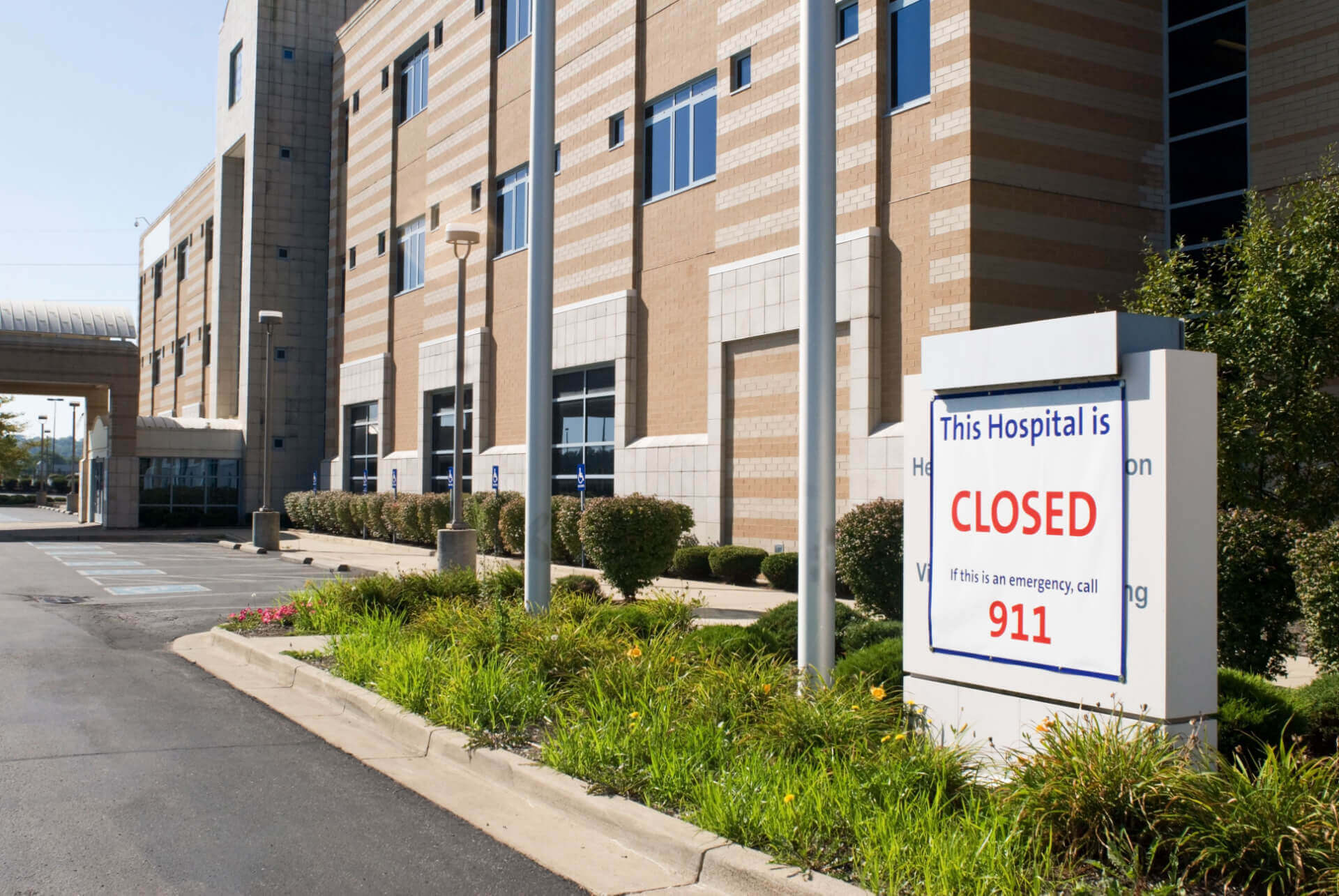
Bloomberg : Private Equity Is No Longer a Reliable Last Resort for Troubled Hospitals
October 26, 2023
Private equity firm Prospect Medical Holdings Inc. (formally owned by PE firm Leonard Green & Partners) purchased a financially struggling hospital near Philadelphia with promises of restoring profitability and securing the community’s healthcare needs. However, after seven years, Delaware County Memorial Hospital is closed, Prospect is in debt, and a community group is suing the company. This scenario reflects a broader trend in which private equity’s profit-driven strategies for hospital acquisitions clash with escalating labor costs and rising interest rates.
Bloomberg September 12, 2023: Private Equity Is No Longer a Reliable Last Resort for Troubled Hospitals
Private equity owns a significant portion of for-profit hospitals in the US, including those in non-urban areas, with rural and safety-net hospitals at particular risk of closure. In its story, Bloomberg referenced the PESP Private Equity Hospital Tracker, saying, “Private equity owns almost 400 of the approximately 5,100 hospitals – or about 30% of all for-profits – in the US…with more than 100 in non-urban areas”
The profitability approach often involves selling hospital properties for quick cash and then leasing them back, but this practice is now under scrutiny for burdening financially struggling facilities with debt. Delaware County Memorial Hospital is currently embroiled in legal disputes, facing allegations of wrongful closure, and threats of substantial fines.
Prospect’s financial troubles and the inability to find buyers for its hospital assets have further highlighted the challenges faced by private equity-owned healthcare facilities. These difficulties have significant implications for low-income communities, as the closure of hospitals, like Delaware County Memorial, leaves them without access to critical healthcare services, including emergency rooms. The broader healthcare industry also grapples with rising costs and regulatory changes, making mergers and acquisitions more challenging.
Bloomberg also cited Pipeline Health as an example of a PE-owned operator that closed a vital hospital in the Chicagoland area. PESP released a comprehensive investigation earlier this year detailing the private equity owners of Pipeline Health and the misleading information it shared with Illinois regulators around the closing of a safety-net hospital.
“But financial distress is ubiquitous, including in the suburbs. Pipeline Health System, a private equity backed operator of hospitals and clinics serving mostly government-insured patients, closed the 230-bed Westlake Hospital near Chicago in 2019 just months after agreeing to keep it open for at least two years, according to a report by the Private Equity Stakeholder Project and court filings. The community sued, resulting in a $1.5 million settlement, but Pipeline ended up seeking bankruptcy court protection last year, citing pandemic-linked costs and delayed payments.”
In Rhode Island, a separate battle unfolded as Prospect sought to sell two hospitals within the state. The state expressed concerns about Prospect’s financial condition and the conditions for approval, alleging that Leonard Green & Partners, a major stakeholder in the company, aimed to exit with a substantial profit and relief from significant debt. An Atlanta nonprofit eventually agreed to purchase the hospitals in Rhode Island, but the application process faced delays and complications, with the state deeming it incomplete in August. Leonard Green Partners, which had withdrawn a significant amount from its investment in Prospect, including management fees and dividends, disclosed that it exited its investment in Prospect in 2021. Eileen O’Grady, PESP Healthcare Director, told Bloomberg that “Leonard Green withdrew $658 million from Prospect over the course of its ownership, including management fees and a $457 million dividend paid to shareholders in 2018.”
Private equity’s hospital acquisition strategies, once seen as profitable, are now facing increased scrutiny and obstacles, affecting both the financial stability of these facilities and the communities they serve.
